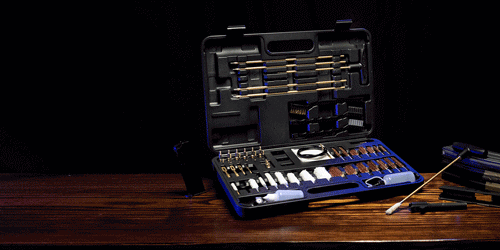
Essential Hunting Tips 101
Introduction:
Hunting is not just a sport—it's a way of life for many. Whether you're hunting for food, managing wildlife, or enjoying the thrill of the chase, every hunter can benefit from the unique hunting experience. In this guide, we’ll cover key tips for both beginners and seasoned hunters to ensure a successful and safe hunting experience. These are essential hunting tips 101 every beginner should know.
1. Understand the Importance of Safety
-
Safety should always come first when hunting. Before heading into the field, ensure you’re familiar with firearm safety regulation. Always assume every firearm is loaded, and point your gun in a safe direction.
-
Wear hunter’s blaze orange to make sure you are easily identifiable, especially when hunting in areas with other hunters.
2. Know Your Prey
-
Research the animal you plan to hunt, including its habitat, feeding patterns, and seasonal behavior. Whether you’re after deer, wild boar, or small game, knowing the habits of your prey can increase your success rate.
-
Be mindful of hunting laws and restrictions in your region. Certain species may have specific hunting seasons or bag limits.
-
3. Scout Your Location
-
Before hunting season begins, scout your chosen area. Look for signs of animal activity such as tracks, scat, and bedding areas. This will give you a better idea of where to set up and when your prey is most likely to be active.
-
Consider the wind direction when positioning yourself. Animals have a keen sense of smell, and staying downwind will increase your chances of remaining undetected.
4. Use the Right Gear
-
The success of any hunting trip heavily depends on using the right equipment. If you're hunting larger game, such as deer or elk, a quality rifle or bow is essential. Ensure your firearm is cleaned and sighted in before the season starts. For this, a GLORYFIRE Gun Cleaning Kit can help maintain your firearm’s precision and reliability.
-
Invest in high-quality outdoor gear, including sturdy boots, camouflage clothing, and backpacks to carry your supplies. Don't forget to pack essentials such as a knife, rope, and a GPS or compass for navigation.
5. Practice Makes Perfect
-
Whether you're a rifle or bow hunter, regular practice is crucial. Spend time at the shooting range or archery field to improve your accuracy and reaction times. Remember that a clean, ethical shot is vital for a quick and humane kill.
6. The Art of Patience
-
Hunting requires patience and persistence. Be prepared to spend hours—sometimes even days—waiting for the perfect opportunity. Patience is key to not only spotting your target but also ensuring you take a safe and effective shot.
7. Field Dressing Your Game
-
Once you’ve made a successful kill, field dressing is the next essential step. This process involves removing the internal organs of the animal to preserve the meat. Use a quality knife and follow ethical procedures to minimize waste.
8. Leave No Trace
-
Ethical hunting also involves respecting the environment. Always clean up after yourself by picking up any spent shells, trash, or gear. Ensure that you leave the hunting area as you found it—if not better.
Conclusion: Hunting can be a rewarding and fulfilling activity, whether you’re providing food for your family or connecting with nature. By following these essential tips, you can improve your skills, stay safe, and uphold the ethical standards of the hunting community.






